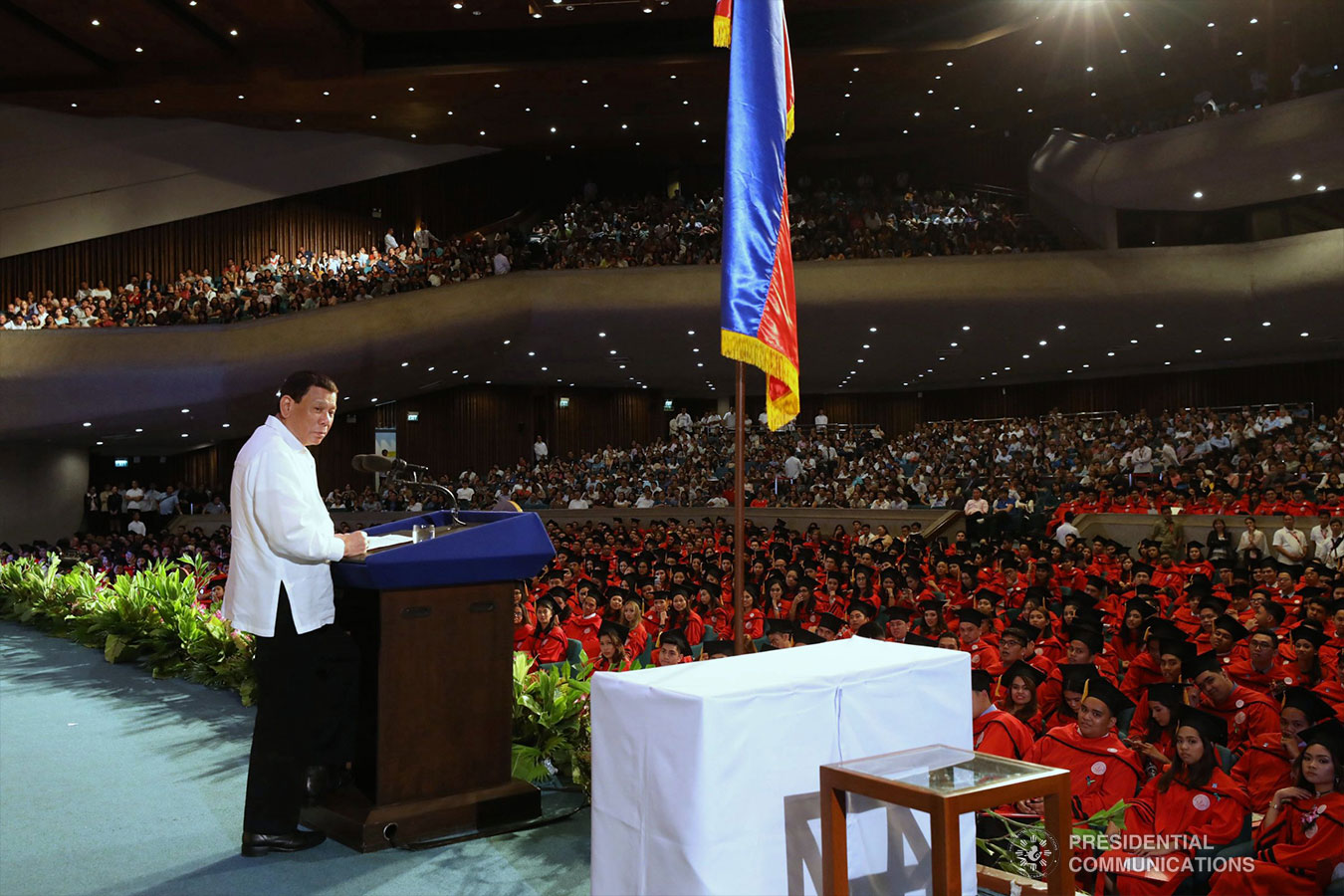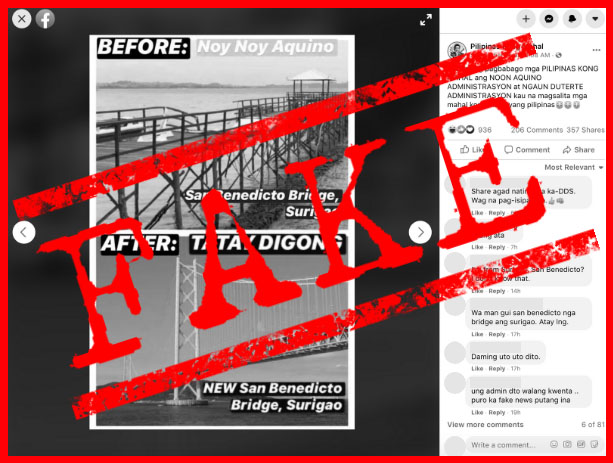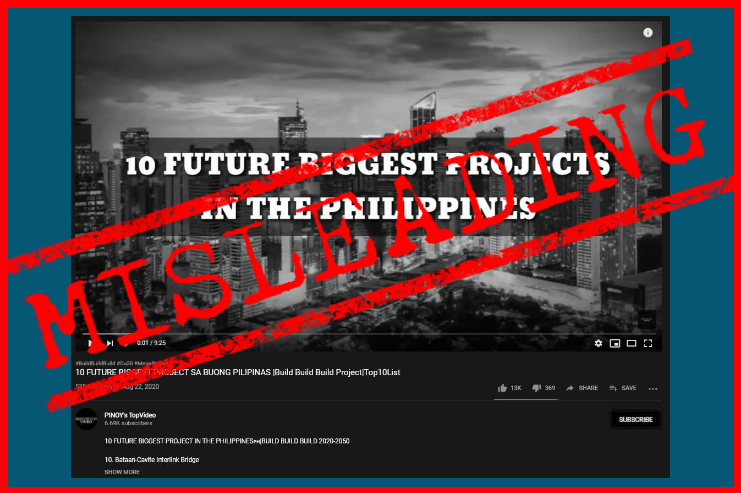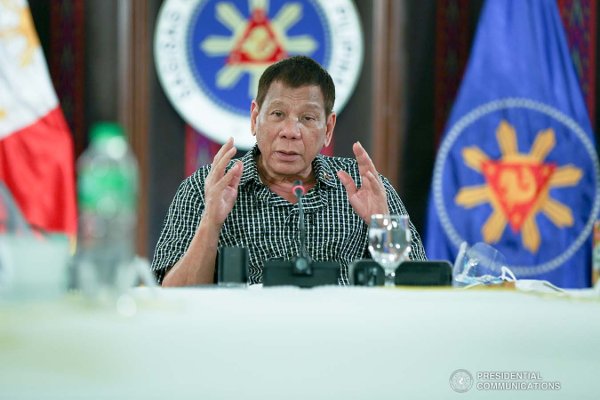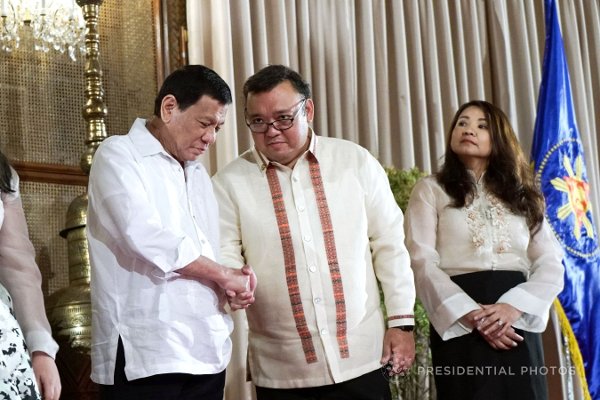In a speech where he wavered between pessimism and optimism about the future of Mindanao, President Rodrigo Duterte erred on an important detail about the Bangsamoro peace process.
STATEMENT
At the closing ceremony of the 26th Mindanao Business Conference in Cagayan De Oro on Sept. 9, Duterte said he would “like to pursue the talks” with Moro liberation forces in Mindanao.
He said:
“Let me assure the MI, uh we continue to respect the leadership, and we would like to pursue the talks, and for Nur Misuari the same thing.”
Source: RTVMalacanang, Closing Ceremony of the 26th Mindanao Business Conference, watch from 5:05 – 5:22
“MI” refers to the Moro Islamic Liberation Front. Misuari is the founder and leader of the Moro National Liberation Front.
The latter had waged, while the former has been waging, an armed insurgency against the Philippine government for the right to self determination of the Moros in Mindanao.
FACT
Contrary to Duterte’s claim, “talks” between the Philippine government and both the MILF and the MNLF have already been concluded.
Duterte has inherited four peace agreements signed by previous administrations:
- The 1976 Tripoli Agreement, signed between the Marcos administration and MNLF, which provided for the creation of an autonomous region in Mindanao.
- The Final Peace Agreement in 1996 between the Ramos administration and the MNLF, designed to fully implement the Tripoli Agreement and establish the Autonomous Region in Muslim Mindanao (ARMM).
- The Framework Agreement on the Bangsamoro (FAB), signed between the Aquino administration and the MILF in 2012, where both parties agreed to replace the ARMM with a new political entity called the Bangsamoro.
- The Comprehensive Agreement on the Bangsamoro (CAB), the final political settlement between the government and MILF signed in 2014. With the CAB, the MILF agreed to decommission its fighters, while the Philippine government agreed to the creation of the Bangsamoro, an entity more autonomous than ARMM, through an enabling law called the Bangsamoro Basic Law (BBL).
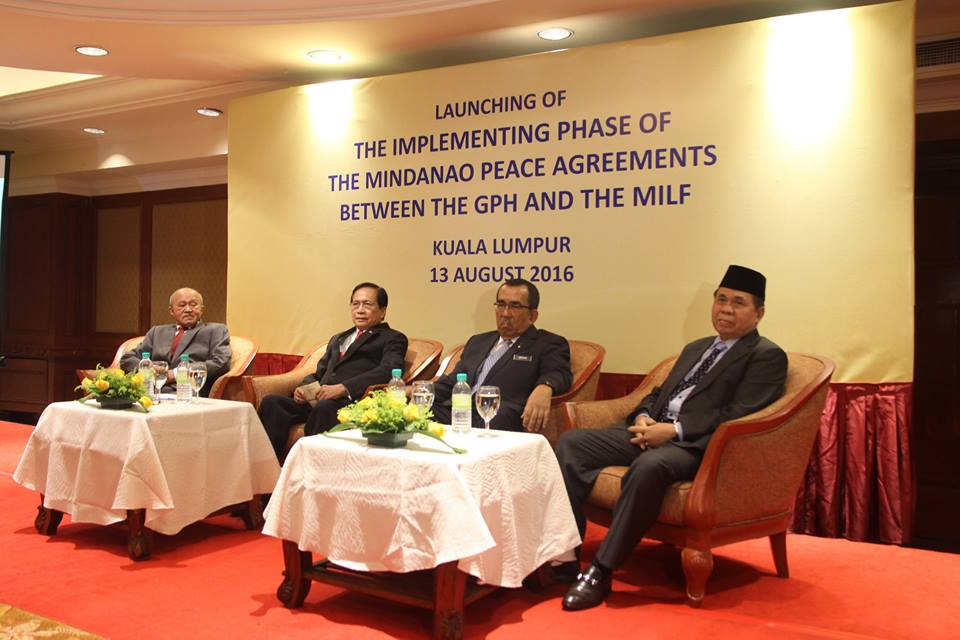
MILF and Philippine government peace panels in a meeting in Kuala Lumpur, Malaysia. Photo from OPAPP
BACKSTORY
Implementation woes trailed the government’s peace agreements with both the MNLF and the MILF, especially regarding the granting of autonomy to the Moro people in Mindanao.
The ARMM, which traces its history from among others the 1976 Tripoli Agreement, has been beset with development challenges, and remains the poorest region in the country.
Former President Benigno Aquino III has called the ARMM “a failed experiment,” ostensibly to be solved by the peace deals his administration has signed with the MILF through the FAB in 2012 and then the CAB in 2014.
Yet, the BBL, a crucial piece of legislation that would implement the peace deal, failed to pass Congress during Aquino’s term.
Duterte, for his part, has been unclear about the prospects of the BBL under his administration, having made different policy pronouncements on the matter. (See: Is that so? Duterte unclear on BBL).
Before being elected president, Duterte during a Feb. 2016 visit to MILF’s Camp Darapanan, said he would push for the passage of the BBL and make the proposed Bangsamoro region a template for a broader plan to shift the country’s system of government to federalism.
During his first months in office, and prior to his first state of the nation address (SONA), the president said he would push for the shift to federalism that incorporates provisions of the proposed BBL. If this strategy is rejected, he would move for the passage of the BBL, he said.
Yet, in his first SONA, Duterte urged Congress to pass the BBL but take out its contentious and supposedly unconstitutional provisions, and include Misuari in the process. (See Is that so? Duterte unclear on BBL)
On Nov. 2016, Duterte reconstituted a new transition council, tasked to submit a new draft BBL. The council submitted its draft to Malacanang July 18, barely a week before Duterte’s second SONA, where he made no mention of the BBL. (See Duterte targets CPP-NPA-NDF in his 2nd SONA).
The BBL is not among the 28 bills included in the list of approved common legislative agenda for the 17th Congress by the Legislative-Executive Development Advisory Council, as of Aug. 29.
Sources:
National Anti-Poverty Commission
Comprehensive Agreement on the Bangsamoro
Framework Agreement on the Bangsamoro
Annex on Transitional Arrangements and Modalities
Third Party Monitoring Team Fourth Public Report, March 2016 – June 2017
Peace and Development Roadmap of the Duterte Administration
National Economic and Development Authority

